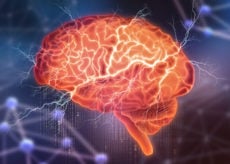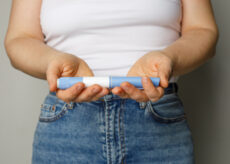These 10 Nutrient Deficiencies Lower Your Libido & Sex Drive
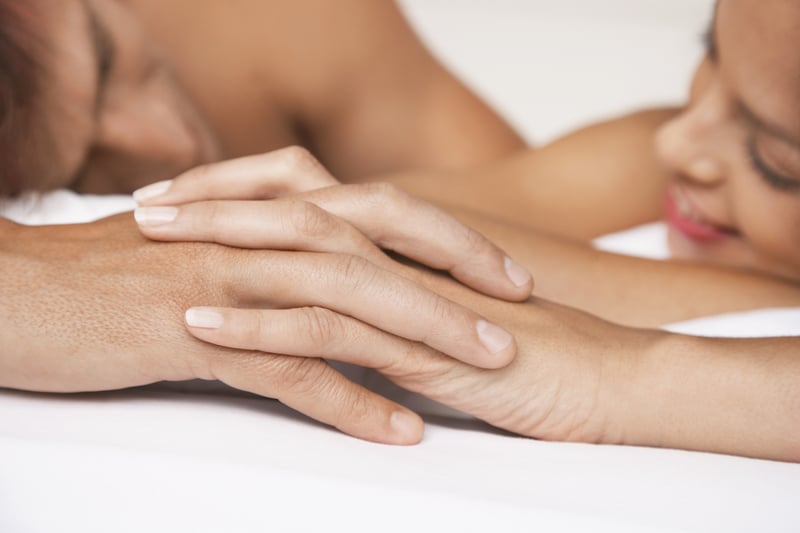
Sometimes, getting “in the mood” can be a little more difficult than others. Maybe you’re just stressed, overly tired, or not feeling connected, but another reason you may find yourself resisting sexy time is because your body isn’t getting enough nutrients.
Low libido (that is, low sex drive) isn’t unusual. Ten percent of women and 14.4% of men report sexual issues each year, with up to 31% experiencing it at some point in their lives. And nearly 27% of premenopausal women experience low libido, with that number jumping to 52% of menopausal women. 1
Several factors influence sex drive. It may go up or down depending on:
- Age
- Stress levels
- Schedules
- Hormone levels
- Relationship status, changes, or problems
- Illness
- Exhaustion
- Personal attitudes about sex
Is Low Libido Normal?
Few people discuss low libido with their doctors, partners, or even themselves. They may believe it’s normal or just part of getting older. While low libido can be a common condition, that doesn’t make it normal or something you need to live with.
Indeed, emotional and mental desire for sex differs drastically between people, and your normal libido may be lower, or higher, than it is for others. There’s a wide range of normal when it comes to sex drive. But if you notice yours is declining, there are steps you can take to turn it up again.
Nutrition, or more accurately, lack of nutrition, can be one of the leading causes for a decrease.
This is because our bodies use nutrients to manufacture sufficient sex hormones. If you aren’t getting enough calories in general, or not getting specific micronutrients, your body may not have the fuel it needs to produce those sex hormones. And those sex hormones ultimately drive sex drive.
10 Nutrient Deficiencies That Lower Your Libido
1. Zinc
Especially now, zinc is perhaps most well-known for its effects on immunity; however, it also has a key role in libido. This is because it’s so intimately connected with testosterone production. This isn’t just important for men. Women need sufficient levels of testosterone as well, and as we age, levels can begin to naturally decrease.
Recommended zinc allowances are between 8 and 11 mg. Foods rich in zinc include red meat, pork, shellfish—especially oysters, though Alaskan crab, shrimp, and mussels are also good sources—legumes like chickpeas, lentils, and beans, nuts and seeds, cheese and milk, eggs, whole grains, and vegetables like potatoes, green beans, and kale.
Because zinc deficiencies are so common worldwide, 2 supplementation may also be worth considering. Just make sure you’re also getting sufficient levels of copper, as zinc can decrease copper.
2. Magnesium
This mineral has hundreds of roles within the body, one of which is supporting healthy dopamine levels. Dopamine is not only associated with the reward system and happiness, but it’s also directly related to testosterone. (Again, both men and women need healthy testosterone levels.)
As well, low magnesium levels can lead to leg cramps, muscle spasms, pain, fatigue, and sleep disruptions, all of which can negatively impact libido.
Fortunately, magnesium is easy to find in green leafy vegetables, numerous fruits, and nuts and seeds. You may also choose to supplement with magnesium if your diet is lacking. Recommended amounts for adults are 310 to 420 mg per day.
BREAKING: Forget Taking Collagen, Try This 21-Second Trick for Healthier Skin & Hair Instead
3. Iron
Low iron levels or iron deficiency anemia is one of the most common reasons for decreased sexual function and satisfaction in women. 3 Iron is needed to get the oxygen delivered to cells, so when levels are low, it only makes sense that it would affect sex drive.
If you experience symptoms, test iron levels to see if they’re in healthy ranges. If not, it’s important to find the cause. For example, rule out any internal bleeding or heavy menstrual cycles. Once the cause has been addressed, increase iron levels by eating foods like grass-fed beef, especially organ meats, as well as green leafy vegetables and beets.
If you are considering supplementation, make sure you’re working with a healthcare practitioner, as high iron levels can lead to serious conditions such as heart and liver problems.
4. Omega-3 Fatty Acids
Good omega-3 fats have been shown to support heart, brain, and eye health. They’re also important for mood.
Signs of deficiency include fatigue, irritability, and mood changes. And if you find that you’re not feeling great, libido can understandably drop as well. Plus, getting enough healthy fats throughout the diet has been shown to help support healthy levels of sex hormones like testosterone. 4
The recommended intake of omega-3 fats is between 1.1 and 1.6 grams per day. Some foods high in these important fats include fatty fish like salmon, mackerel, sardines, and tuna. Vegetarian sources include seaweed and algae, walnuts, chia seeds, hemp seeds, flaxseeds, and kidney beans. And, of course, supplements can be one of the easiest ways to ensure you get enough of these fats.
5. Vitamin B12
Another key nutrient when it comes to mood, stress reduction, and supporting healthy hormones is vitamin B12. It’s perhaps best known for its ability to boost energy levels. And of course, sexy time requires energy and a healthy mood.
Foods that provide vitamin B12 include grass-fed meats as well as seafood. It’s also easy to find supplements. Recommended amounts are 200 mcg taken twice daily.
6. Vitamin D
Another very common nutrient deficiency is vitamin D. In fact, around 42% of American adults are estimated to be deficient. This isn’t good as numerous chronic diseases have been linked to chronically low vitamin D levels, including cancer and cardiovascular disease. 5 Plus, vitamin D deficiencies can lead to a decrease in the production of estrogen and testosterone, which are two key sex hormones. Low vitamin D status has been associated with sexual dysfunction in men and women. 6
The best way to ensure you get enough vitamin D is to spend some time outdoors in the sunlight. However, as winter approaches, that can be more difficult. Thus, ensuring you’re consuming foods that provide vitamin D, such as egg yolks, fatty fish like salmon, sardines, tuna, and mackerel, red and organ meats, fortified dairy, and some mushrooms.
Because it can be so challenging to get enough vitamin D from the diet (especially if you limit meat and dairy), supplementation is often considered one of the best ways to get enough. Recommended amounts are 10 to 20 mcg (400 to 800 IU) per day.
7. Vitamin E
Vitamin E has been referred to as the “sex vitamin” as it is needed to transport blood and oxygen to the sex organs and is also needed to regulate sex hormones.
Foods rich in vitamin E include egg yolks, walnuts, chickpeas, sweet potatoes, broccoli, tomatoes, and whole grains.
8. Vitamin A
Vitamin A is necessary for female hormone production and helps ensure reproductive cycles stay on track. It’s found abundantly in vegetables like cabbage, carrots, greens, peppers, sweet potatoes, and tomatoes, as well as fruits like apricots, grapefruit, mango, and watermelon.
9. Nitric Oxide
Nitric oxide (NO) is a vital nutrient for a healthy sex drive. This is because NO is needed for vasodilation or the relaxation of the blood vessels. This, in turn, helps blood flow throughout all parts of the body. Body parts don’t function well without that blood flow, and that includes the sexual organs.
Eating foods high in nitrates can help increase NO in the body. For example, eating beets, arugula, and celery can be beneficial. Flavanols found in vegetables, fruits, and even cocoa may also help the body produce NO. A high-quality reds supplement is another possible easy (and tasty) way to increase nitrates in the diet.
10. Water
Water is so vital for everything our bodies do. It’s the definition of essential. Without it, we die. And when we don’t get enough, we suffer—from fatigue, headaches, muscle cramps, constipation, and worse.
Drinking at least 80 ounces of water per day can help avoid dehydration. However, if you exercise regularly or in hotter or drier environments, you need even more.
Other Causes of Low Libido
Nutrient deficiencies aren’t the only reasons for low libido. It may also be caused by:
- High stress levels, which can affect levels of cortisol. This can leave you feeling exhausted and burnt out with diminished arousal. 7,8
- Mood disorders like depression, which often lead to no longer enjoying things that you once found appealing. Depression can also lead to decreased energy levels, low self-esteem, and viewing yourself and your partner more negatively.
- An underactive thyroid, which can lead to feeling fatigued and can also lead to decreased arousal, lubrication, and satisfaction, especially in women. 9,10
- Sex hormone imbalances, as when levels of estrogen, progesterone, or testosterone are too high or too low, it can affect interest in sex. 11 If you have been suffering from a lack of interest, it may be time to get a comprehensive hormone panel to discuss with your doctor.
- Insulin resistance, or high insulin levels, which can result from conditions like PCOS and metabolic syndrome, may impact sex drive and fertility. 11 These high insulin levels can also affect growth hormone and prolactin, which again have a negative effect on sexual function. 12
- Leptin resistance can also affect testosterone levels, leading to not only weight issues but decreased sex drive. 13
- Heart conditions, which are often linked to sexual problems. Between 60 and 87% of people with heart failure report sexual problems. 14
- Sleep apnea, which can interfere with your ability to get enough quality sleep. 15
- Gut issues are associated with mood disorders, including stress, anxiety, and depression, all of which can negatively affect sex drive. 16
- Medications can also be an overlooked cause of low libido. Even common drugs like antidepressants, blood pressure medications, pain killers, corticosteroids, some types of hormonal contraception, and antihistamines can affect sex drive and function in some folks. 17
- Drug and alcohol use, especially to excess, have also been shown to decrease sex drive.
How to Jumpstart Your Sex Drive
If you are unhappy with your sex drive, in addition to adjusting your diet, there are other factors you can adjust, which may have a significant impact. These include:
- Exercising regularly 18, 19
- Getting enough sleep 20
- Maintaining a healthy weight 21
- Quitting smoking
- Destressing with yoga, meditation, or breathing
- Improving your relationship quality by doing activities and planning date nights together, opening communication, and spending more quality time together with each other
- Looking into herbal remedies, such as maca, Tribulus, ginkgo, or ginseng, which may help support healthy sexual function. 22
If your low libido has appeared suddenly and without explanation, is paired with other symptoms like high blood pressure or pain, or begins after starting a new medication, then it’s likely time to talk openly with your doctor about your symptoms. This is also true if you’re experiencing painful sex or are dealing with mental distress.
Being honest with yourself, your partner, and possibly your doctor is what’s most likely to lead to changes that create a positive shift in your libido.



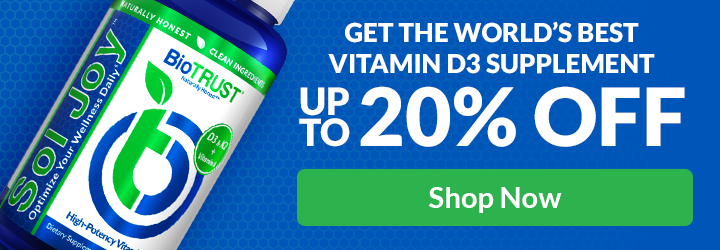
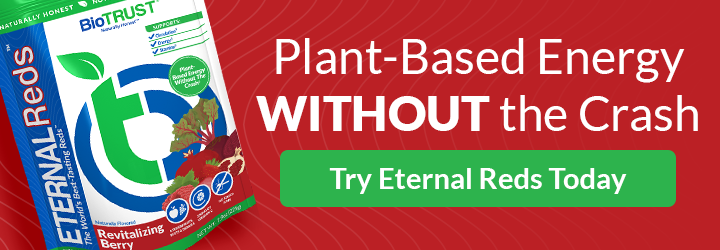

 7 Signs Your Body is Seriously Low on Collagen (not just wrinkles)
7 Signs Your Body is Seriously Low on Collagen (not just wrinkles) Health Expert: "Turmeric Doesn't Work (unless...)"
Health Expert: "Turmeric Doesn't Work (unless...)" 3 Warning Signs Your Probiotic Supplement is a Total Waste
3 Warning Signs Your Probiotic Supplement is a Total Waste